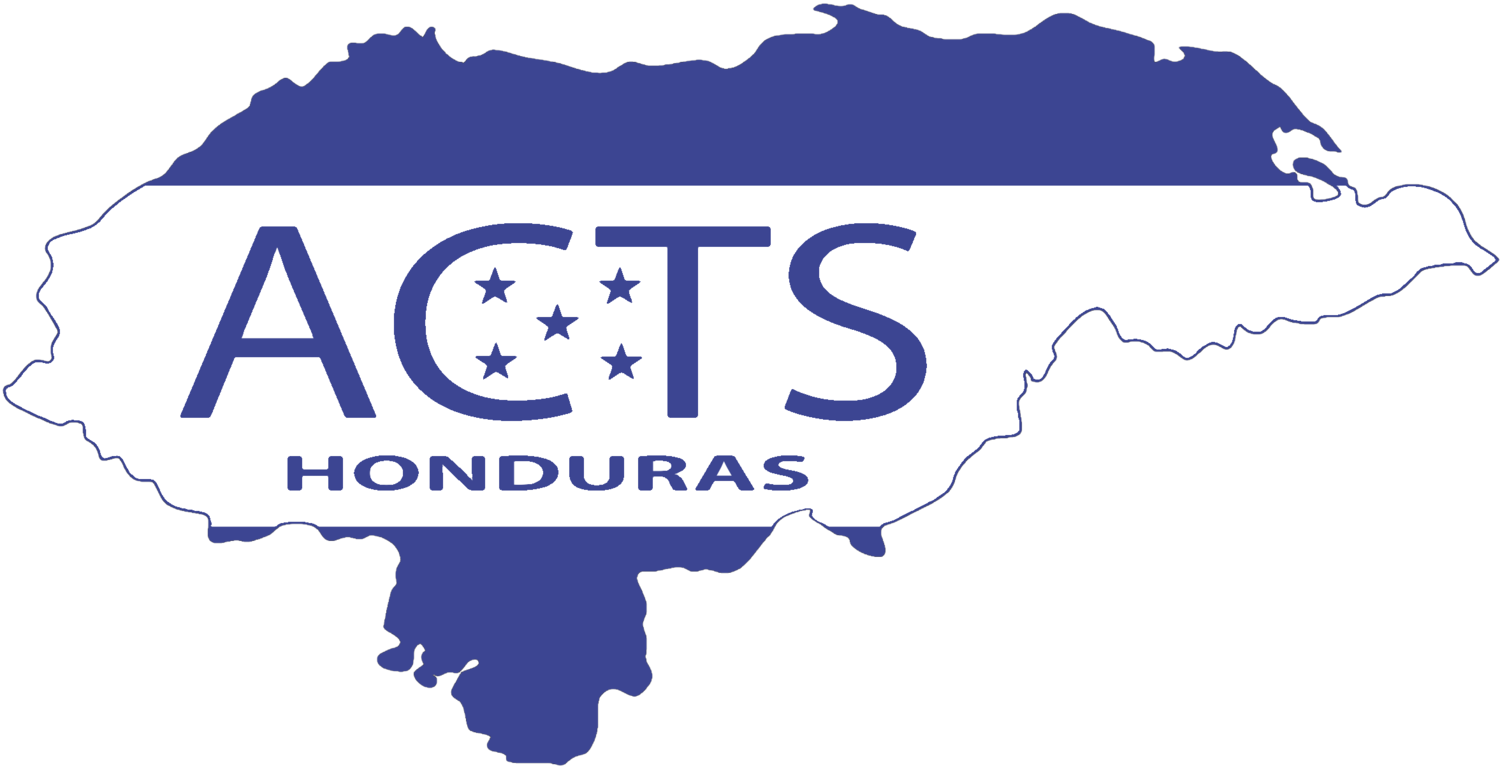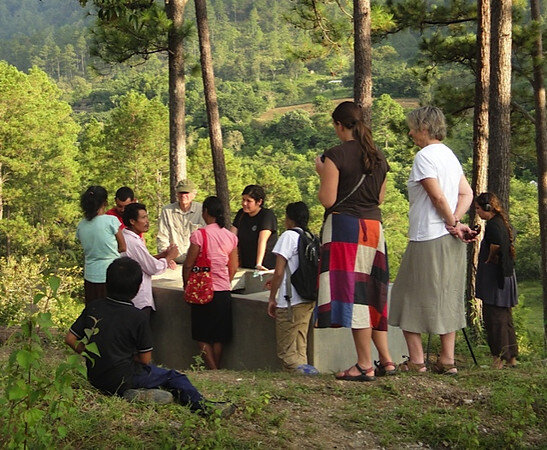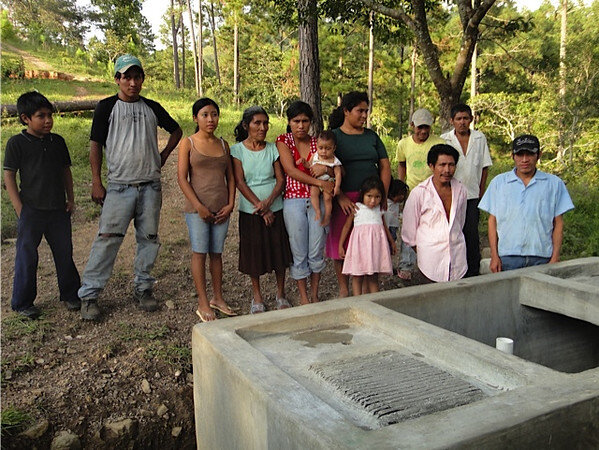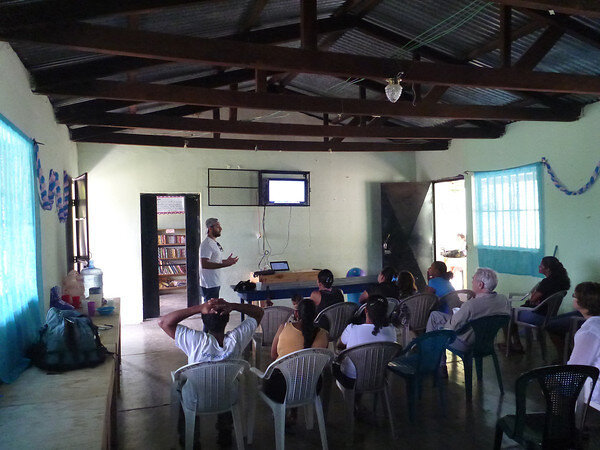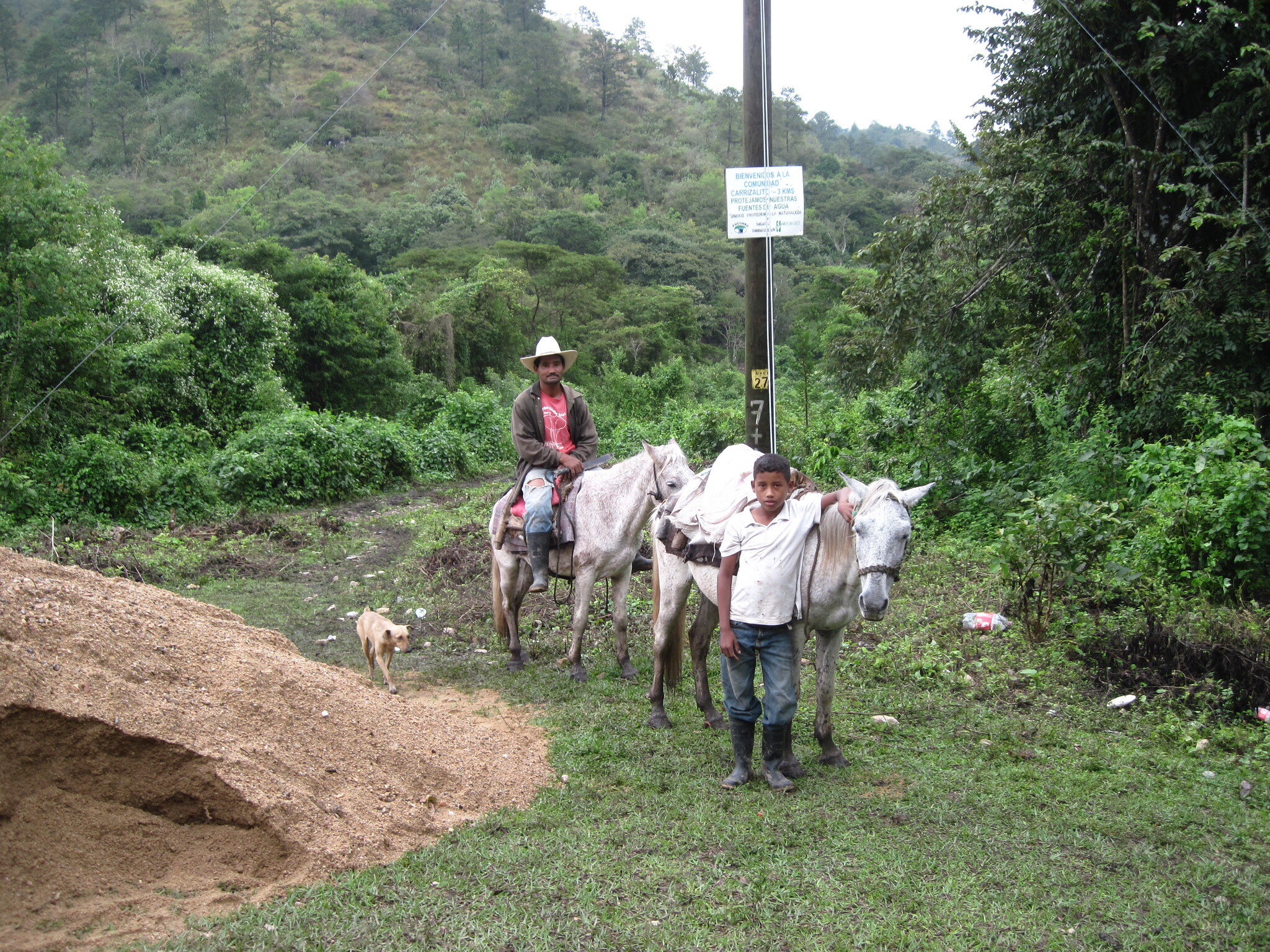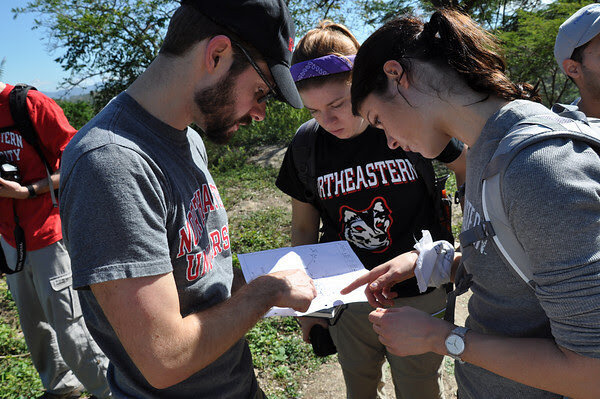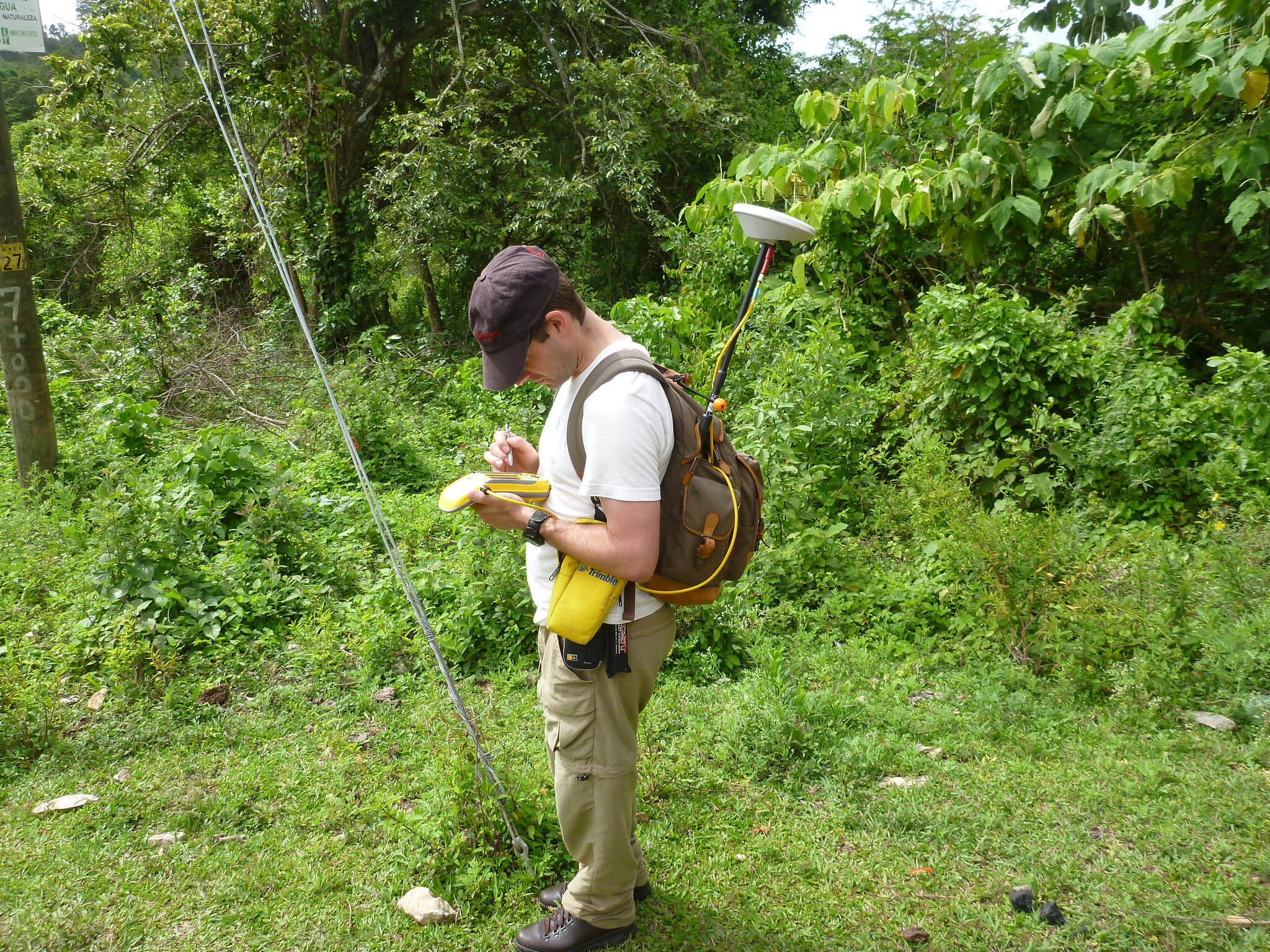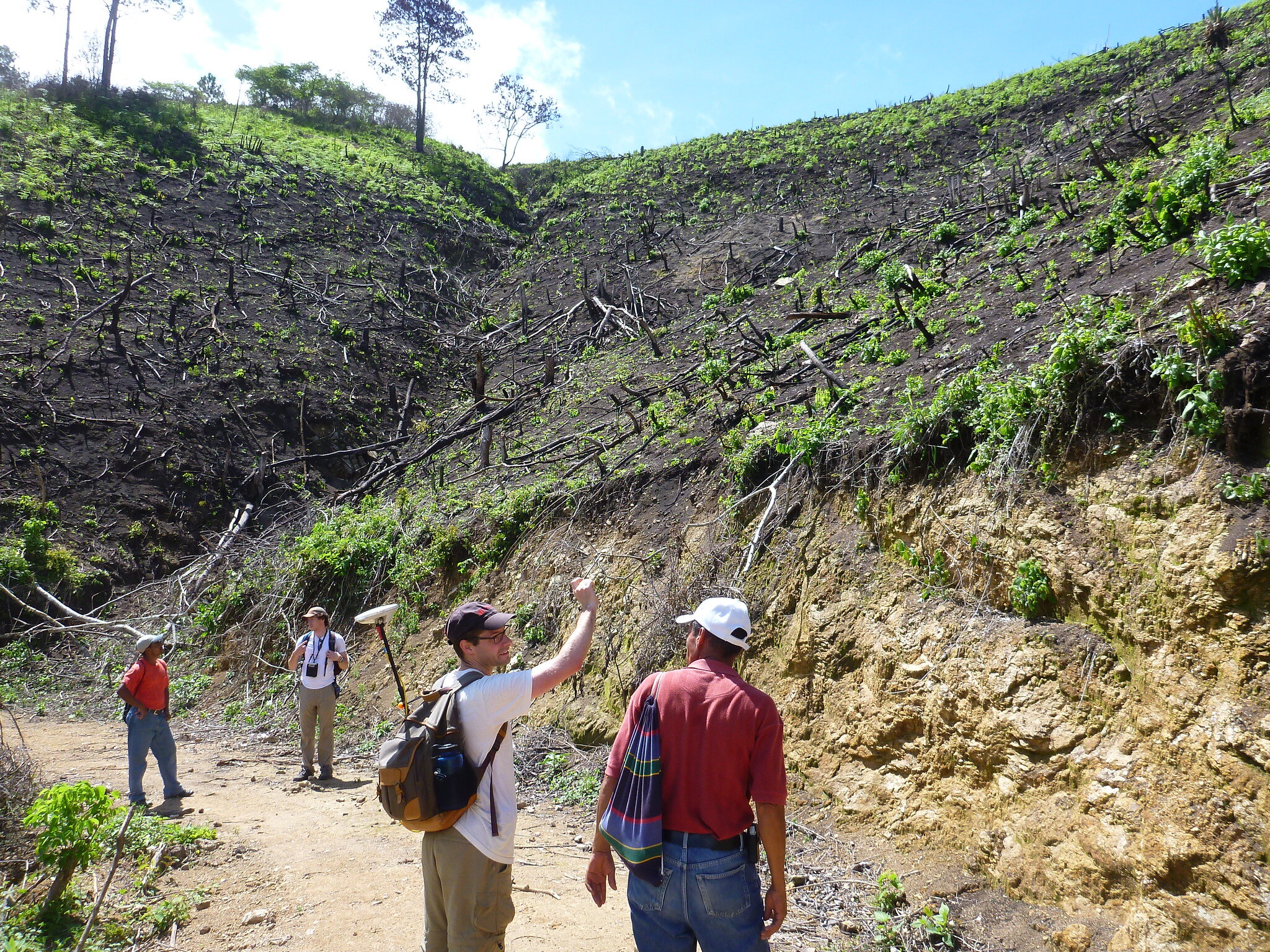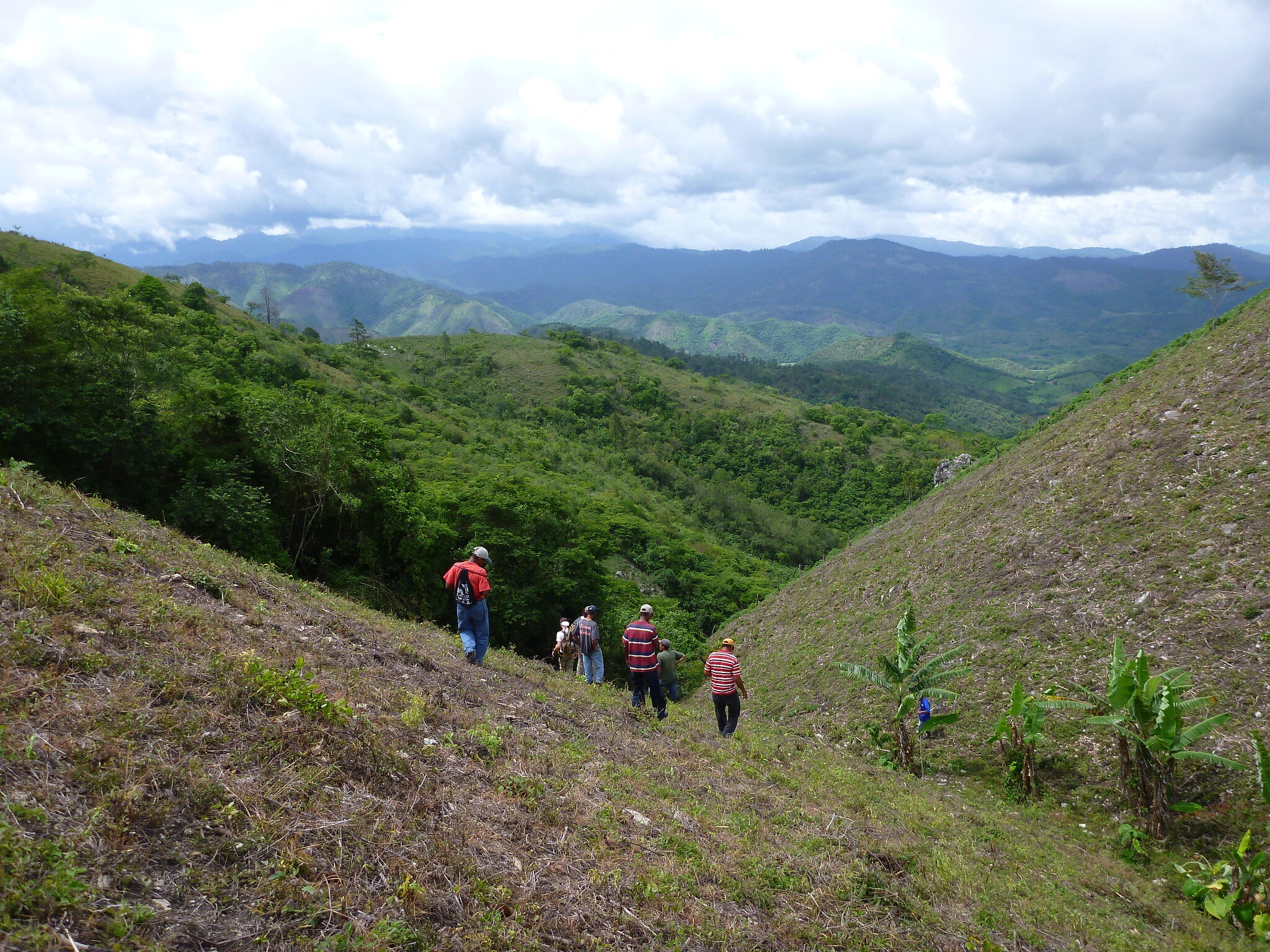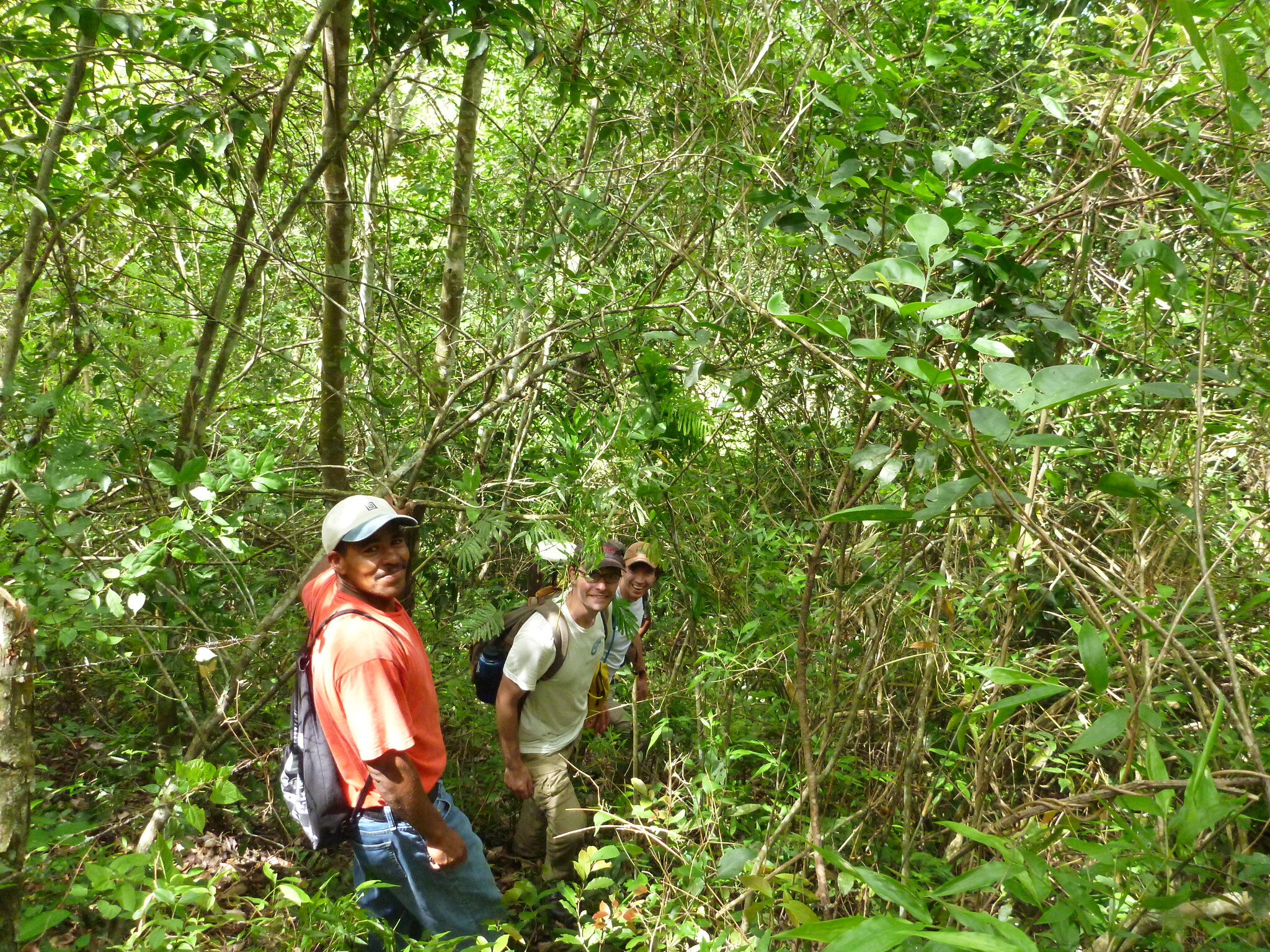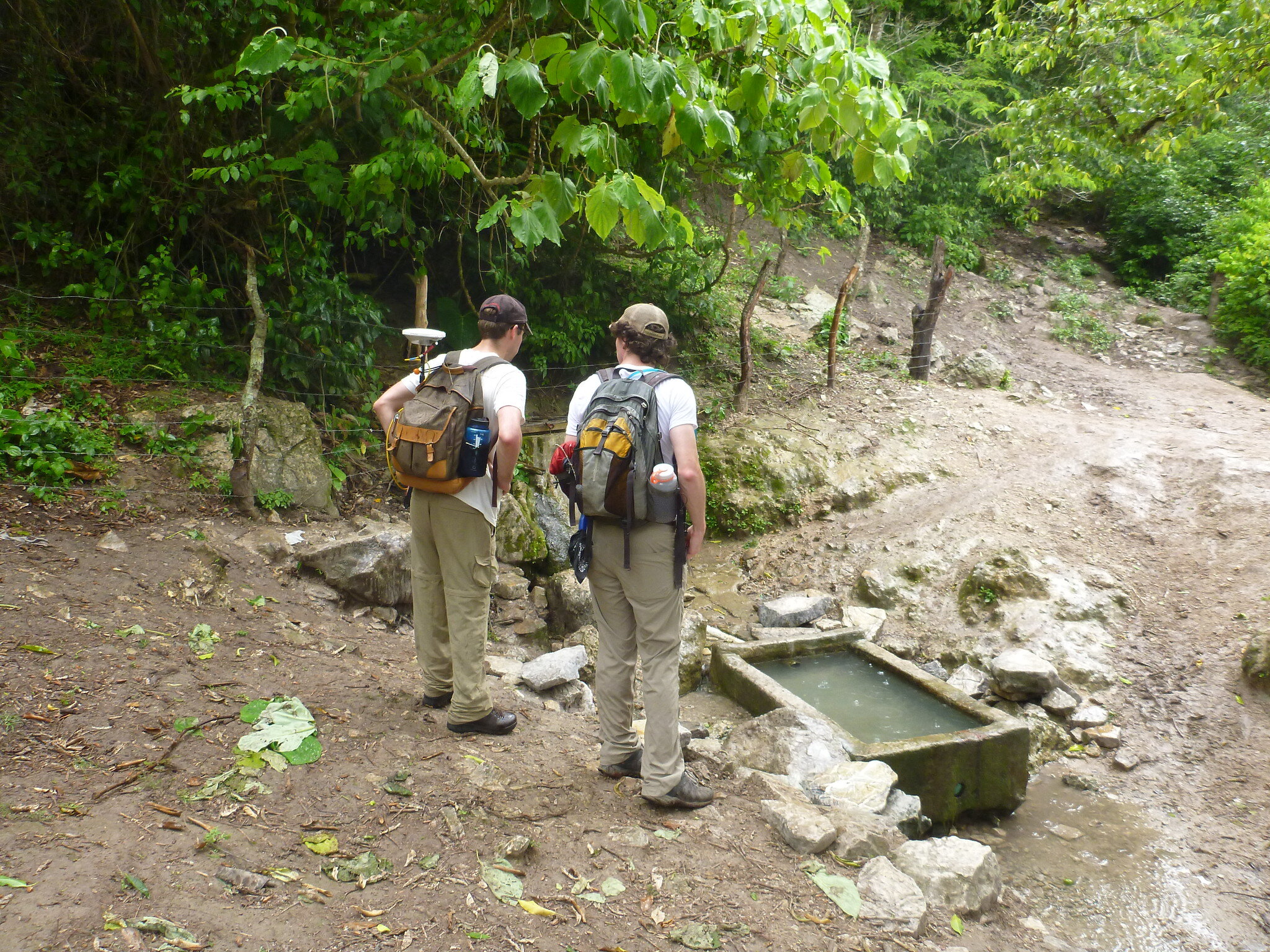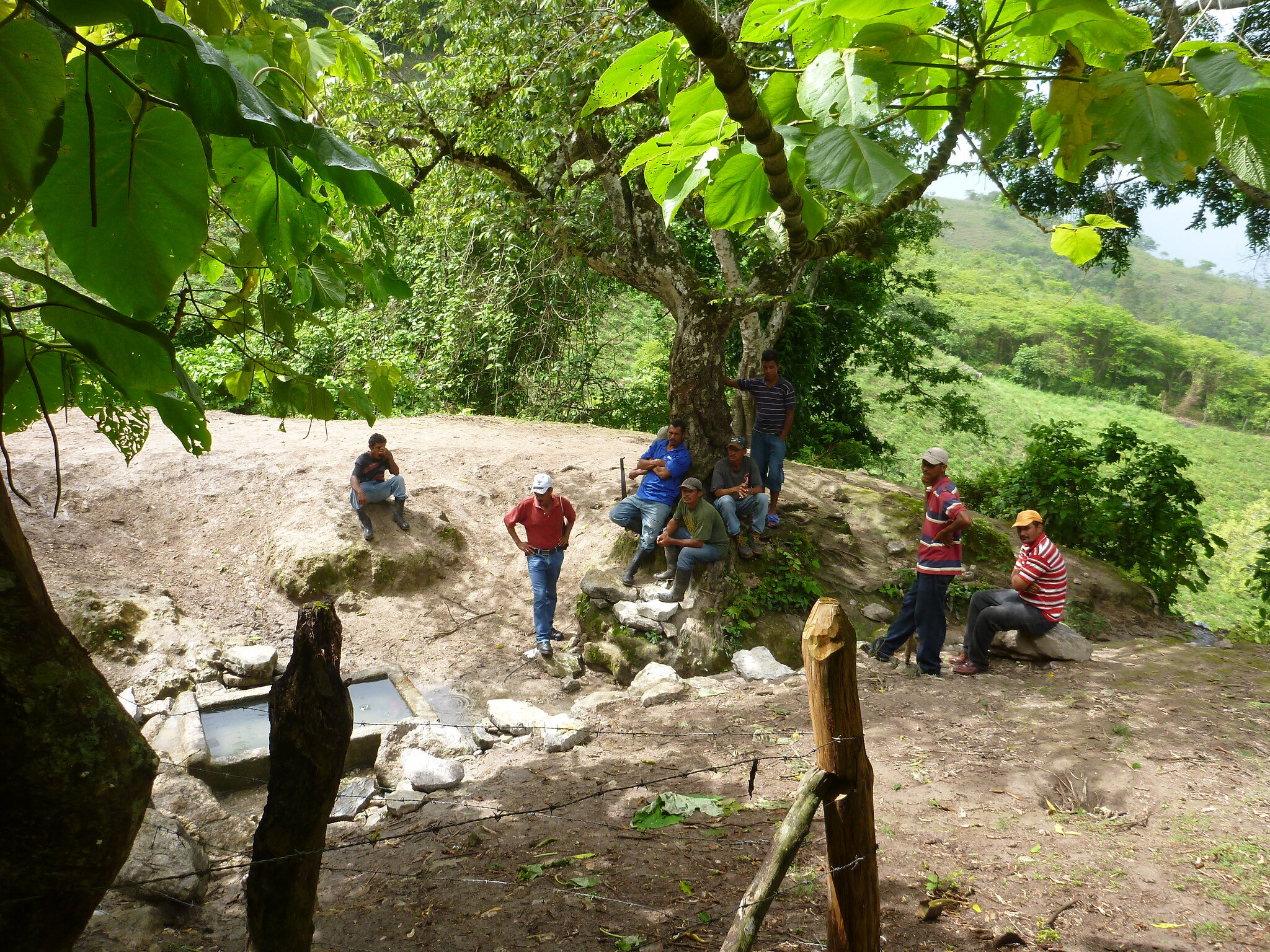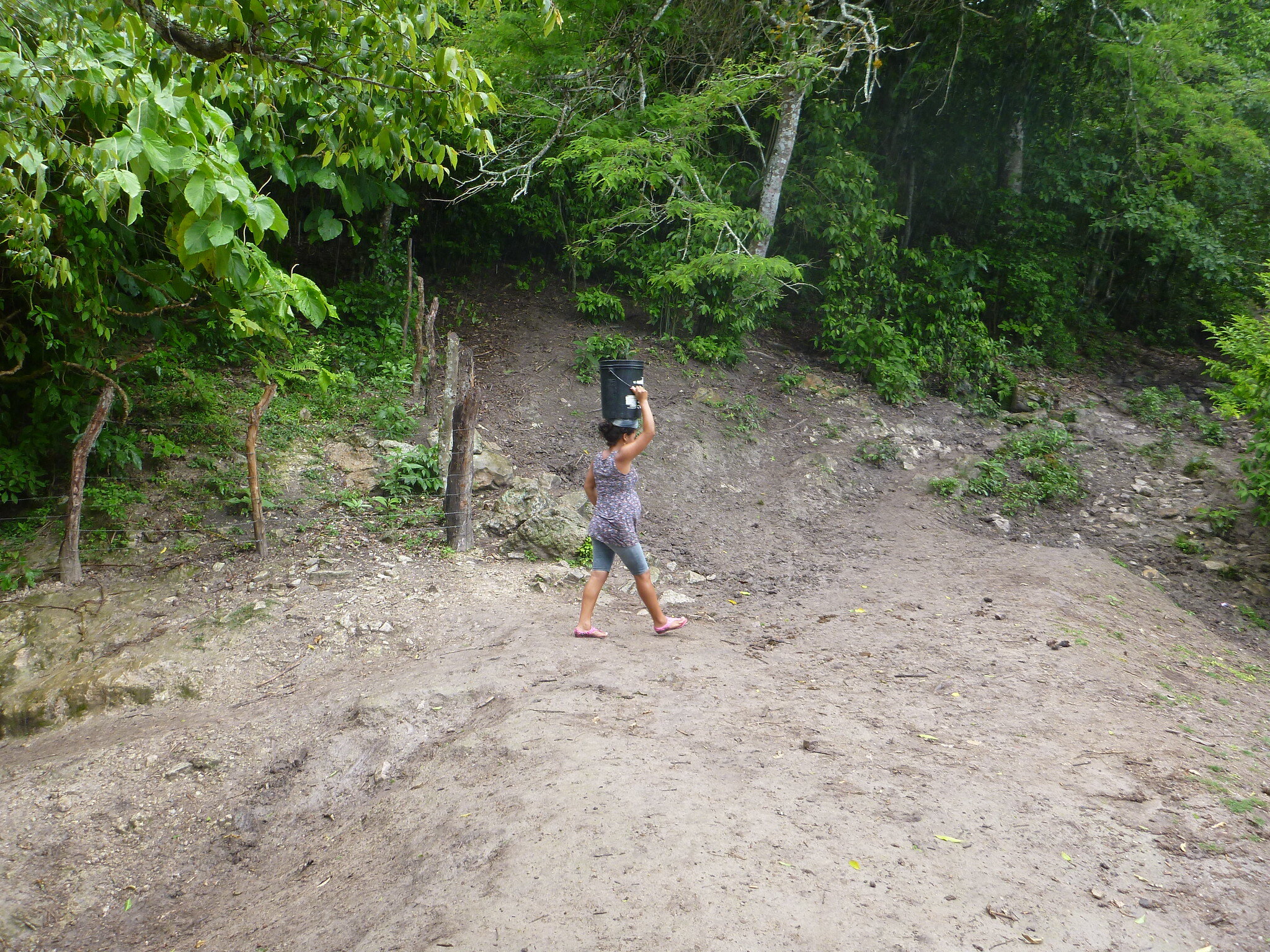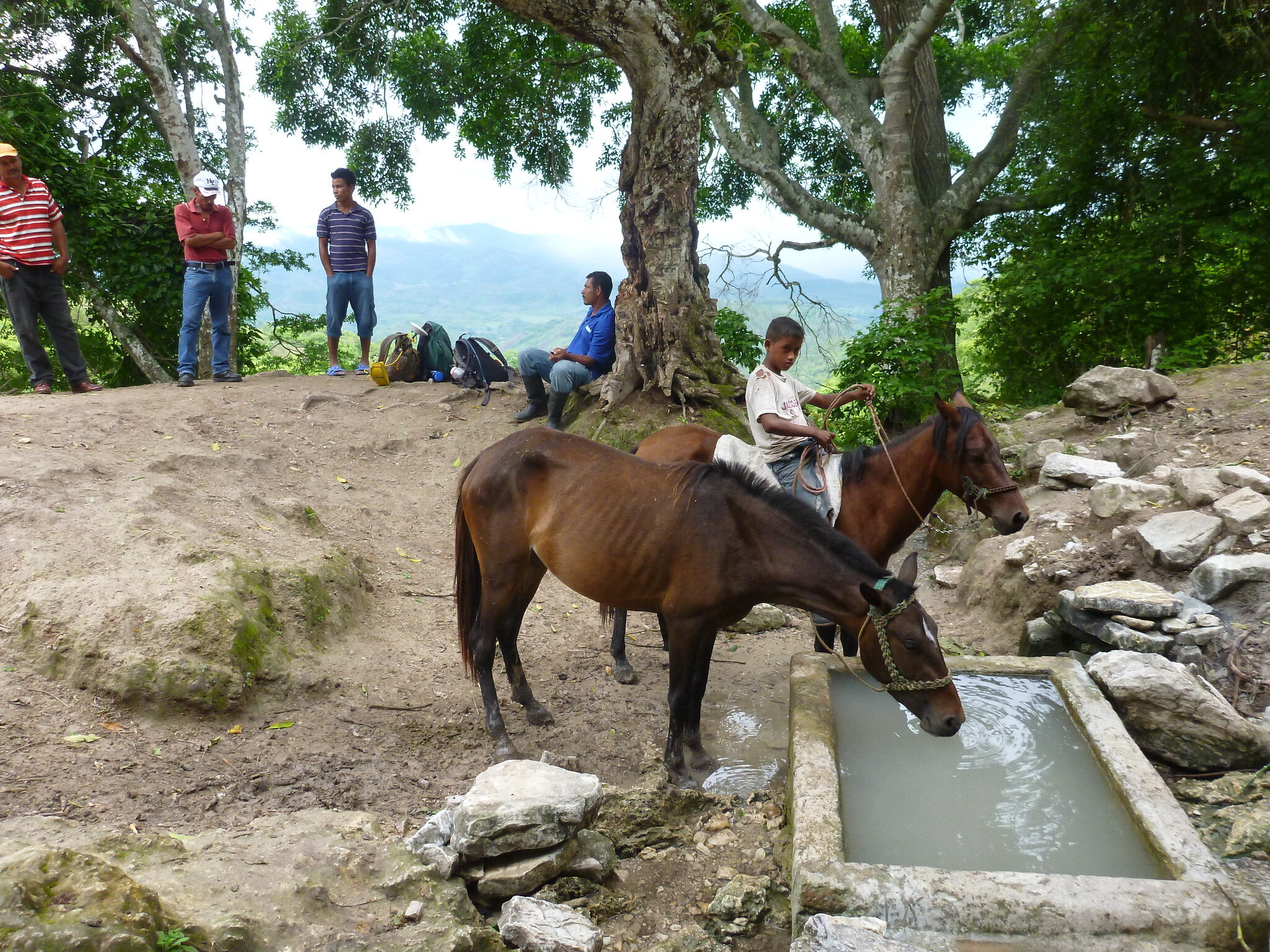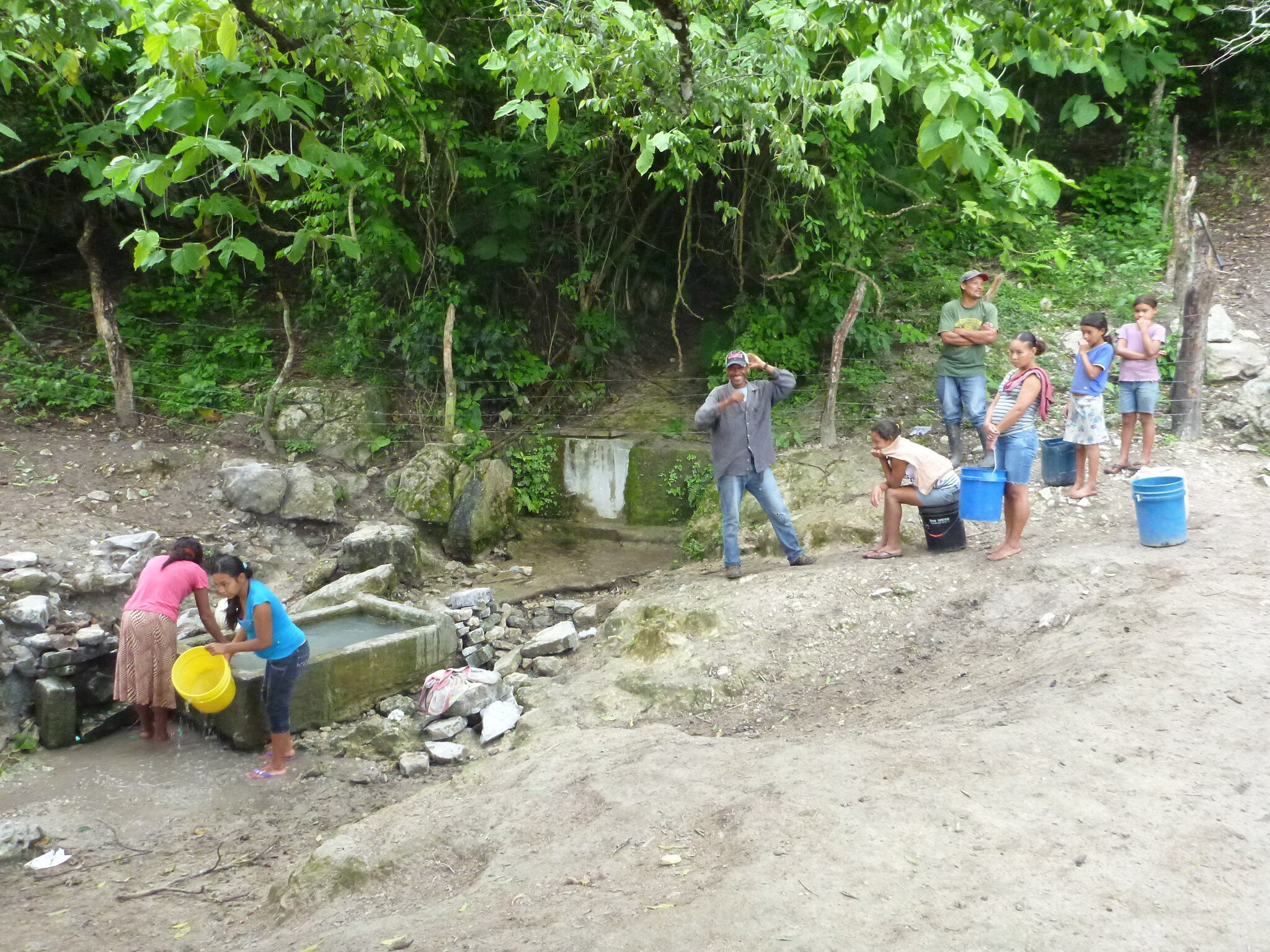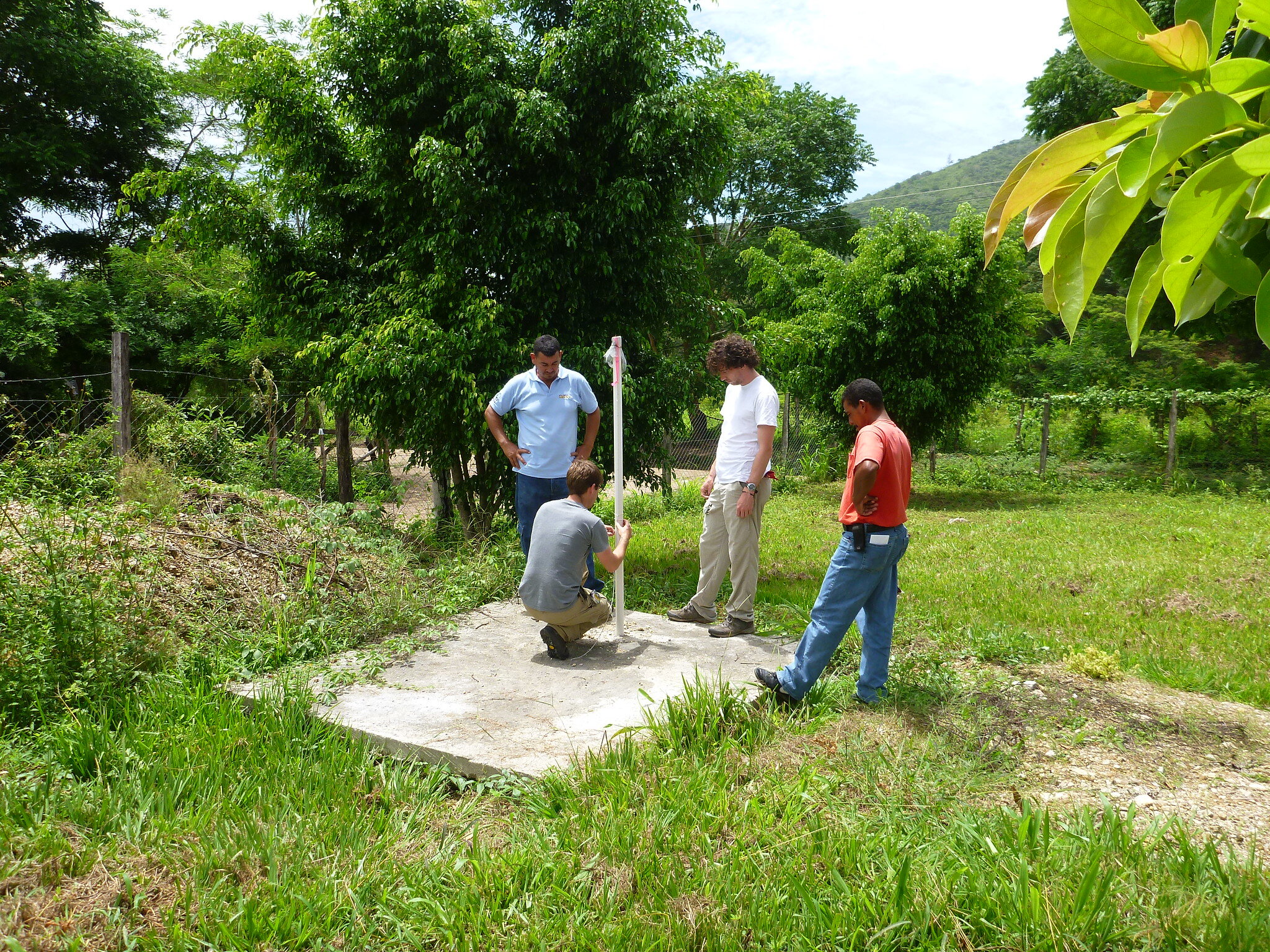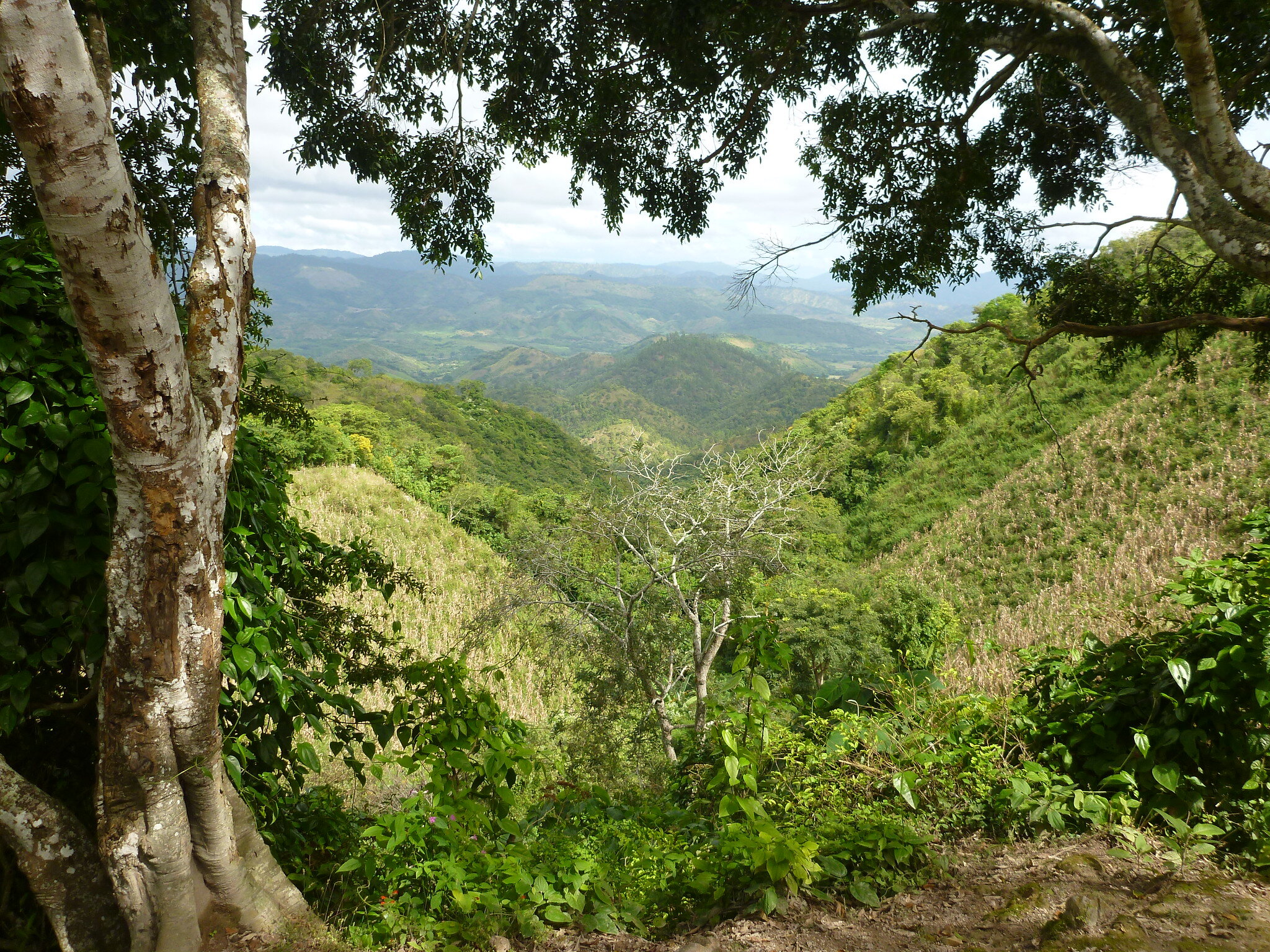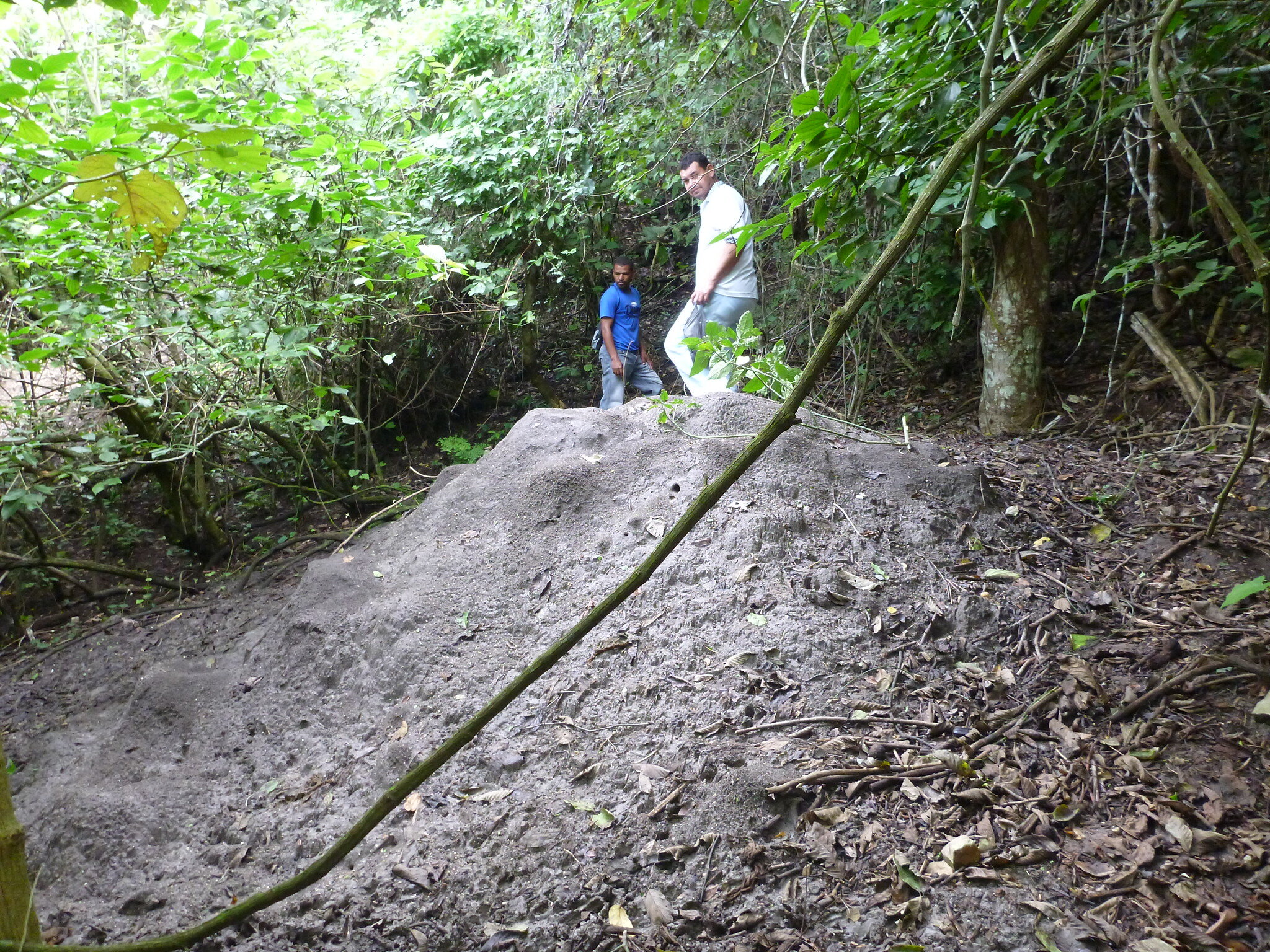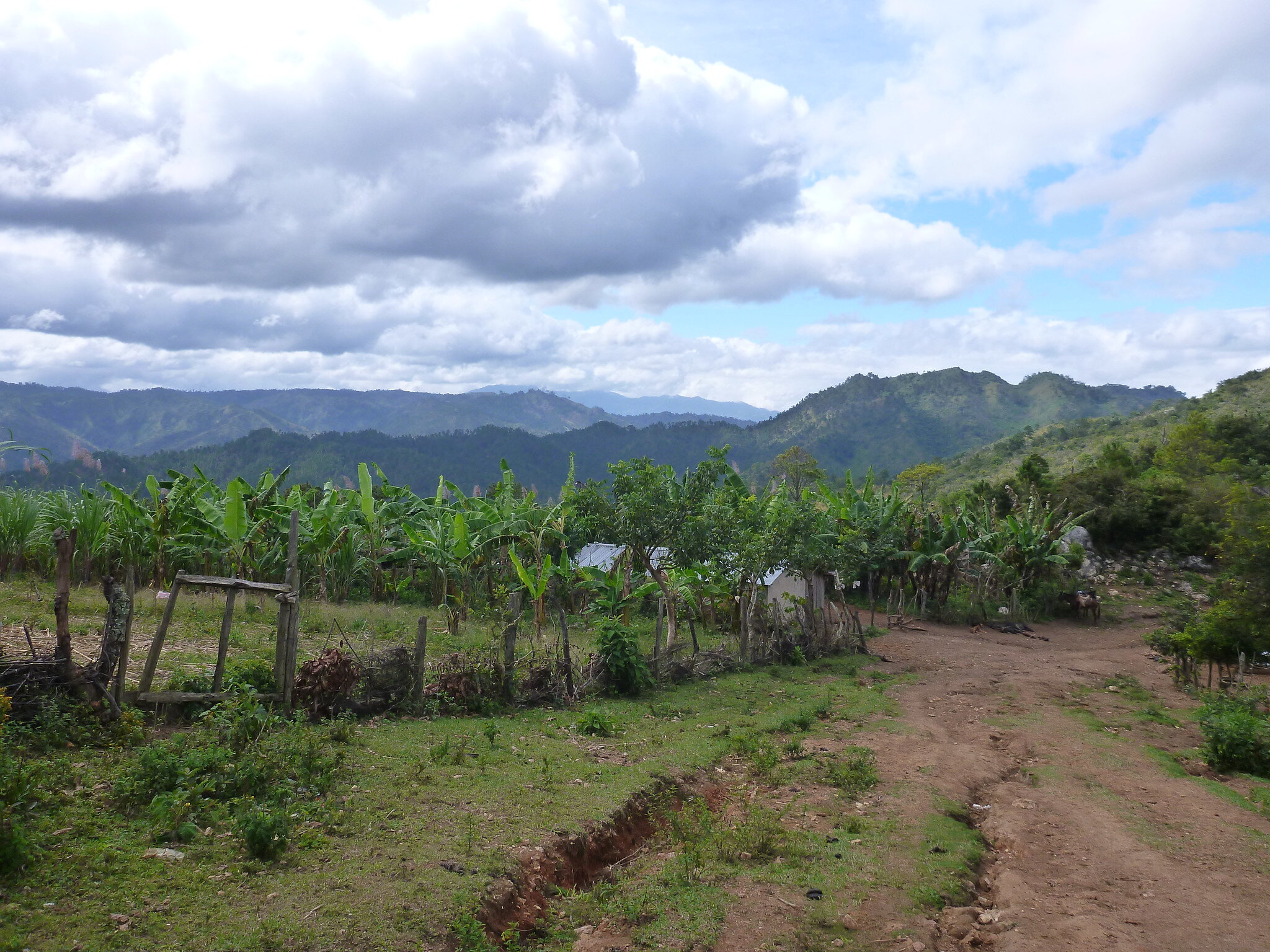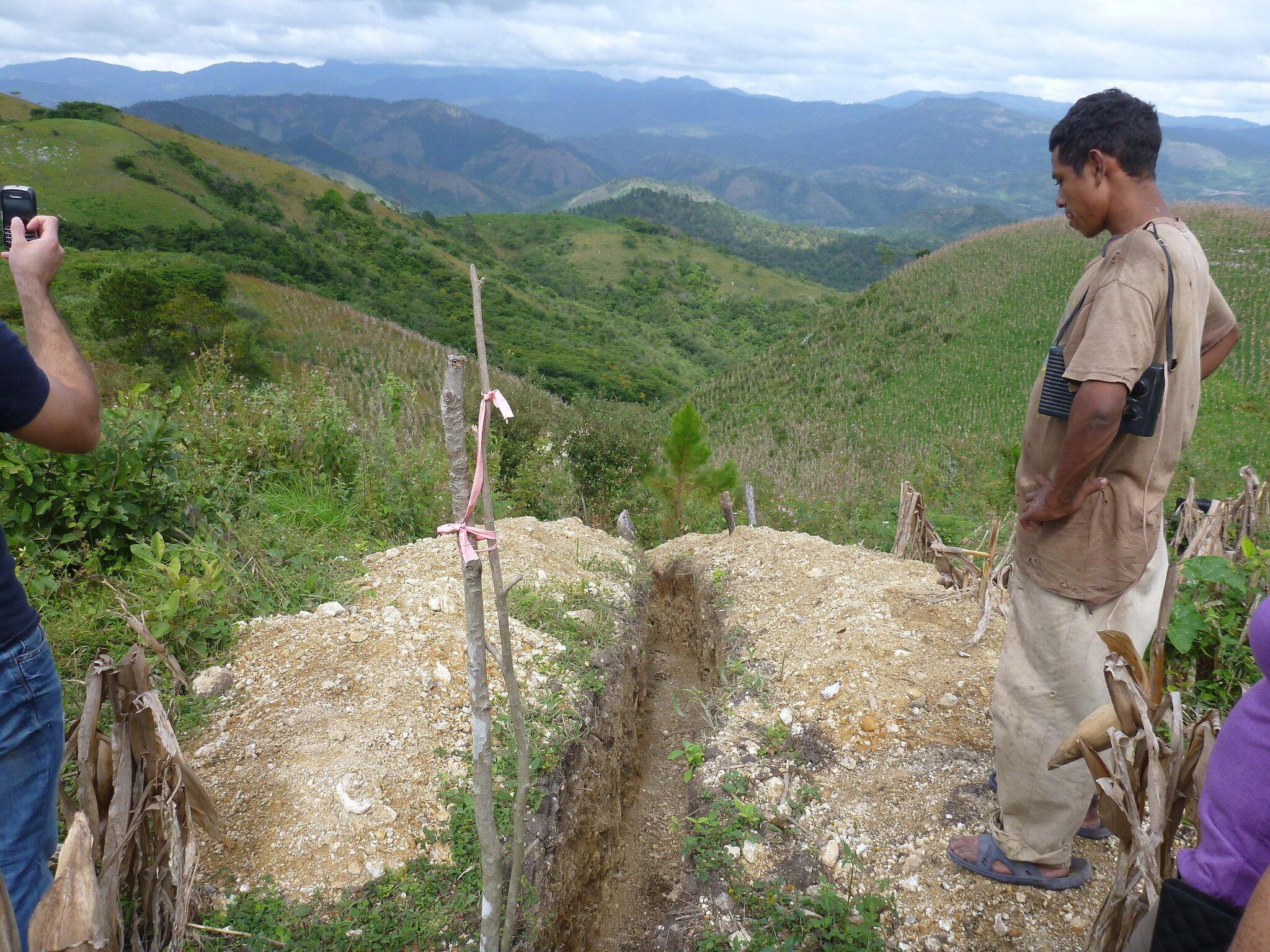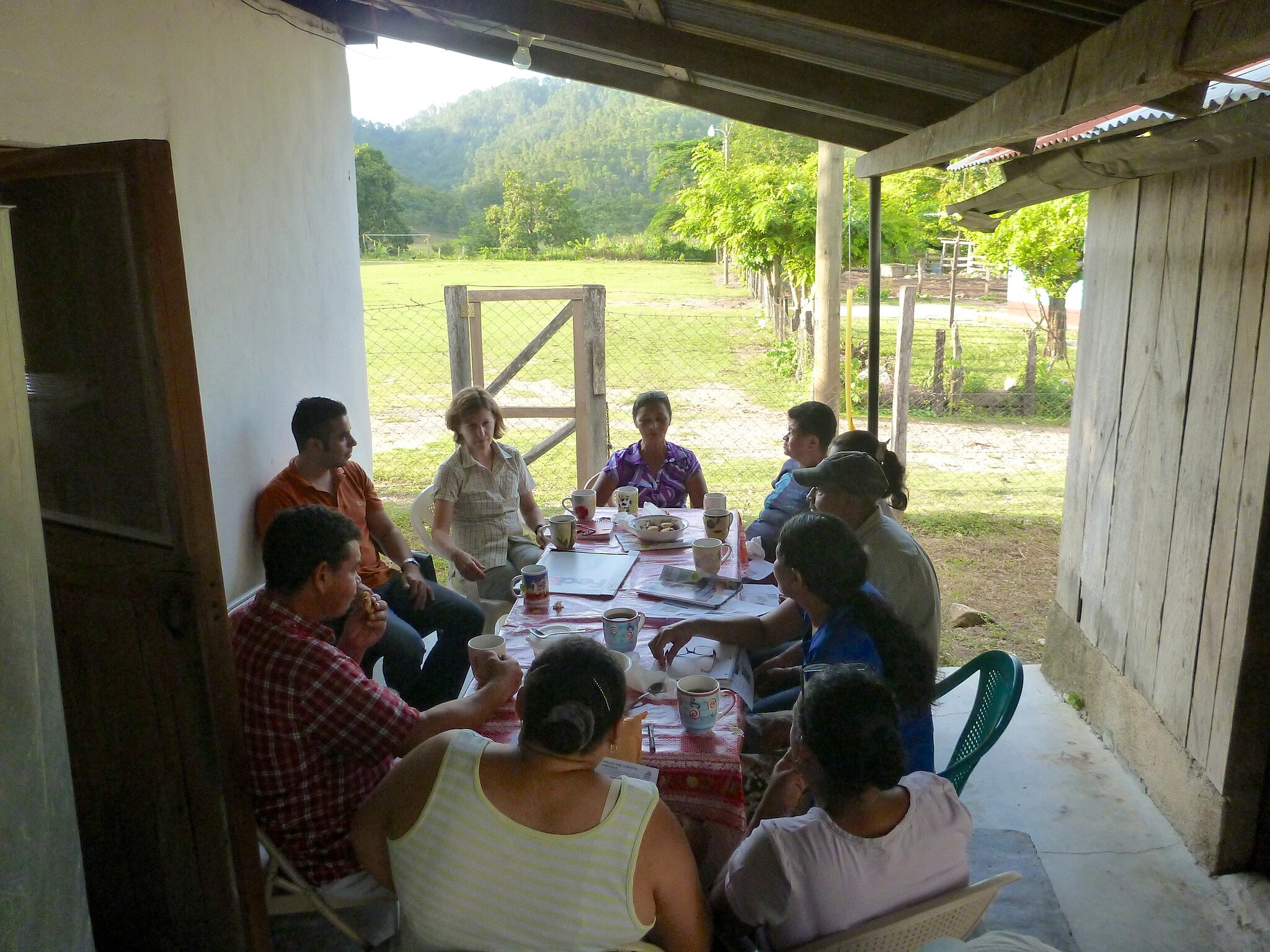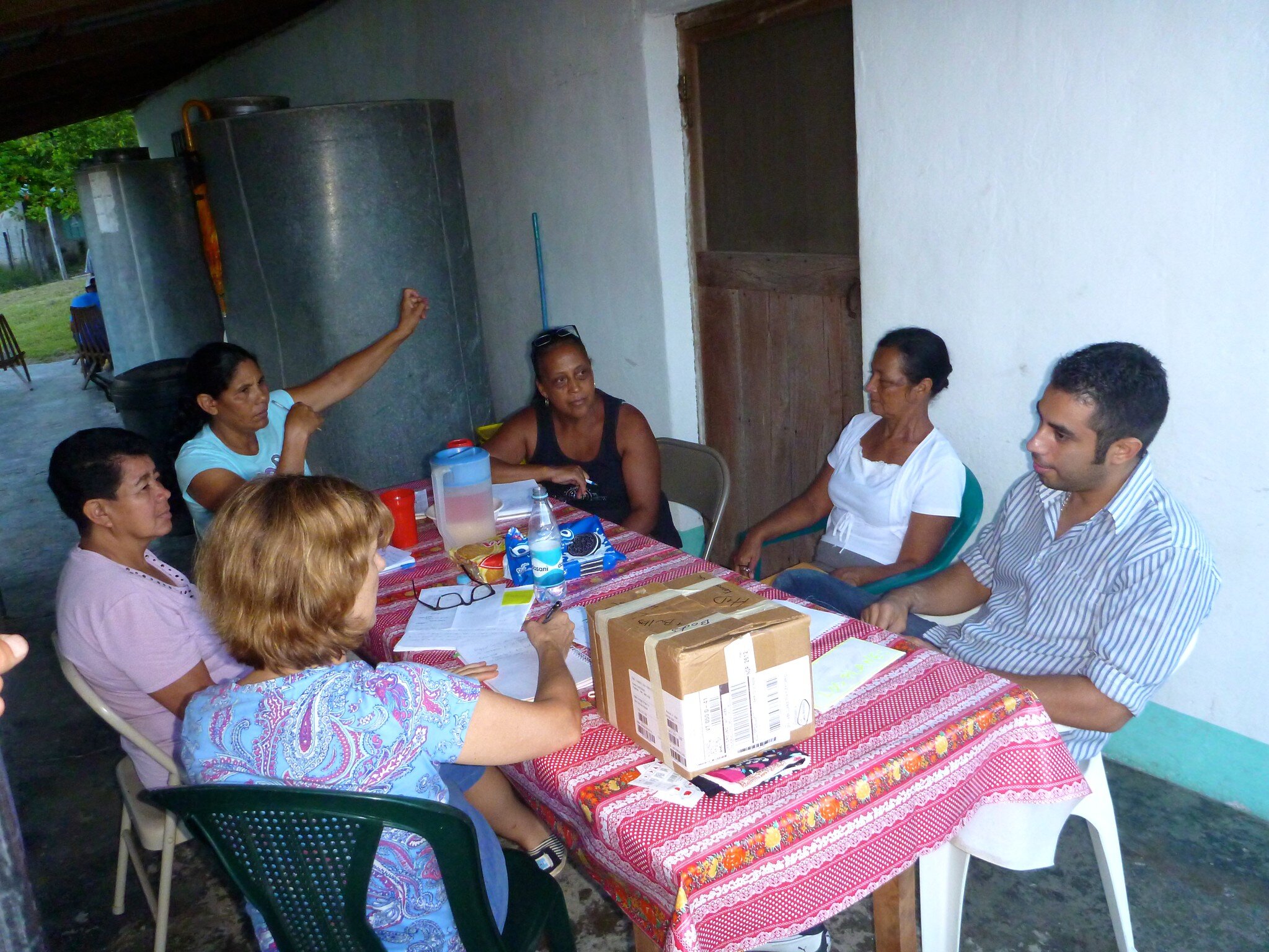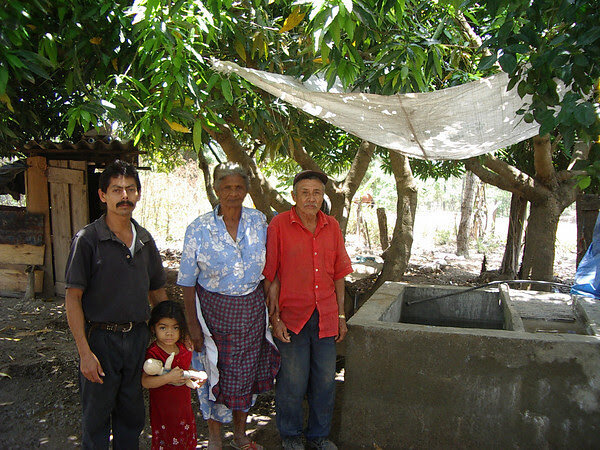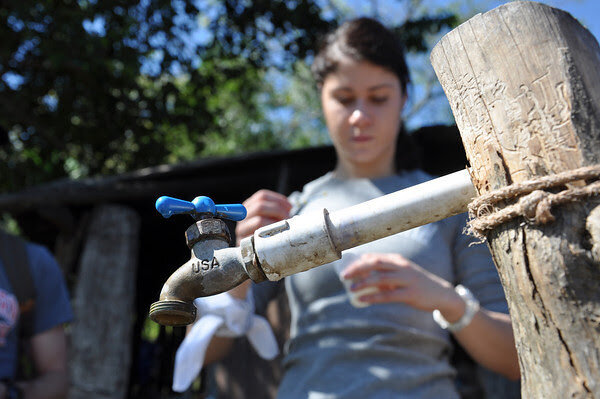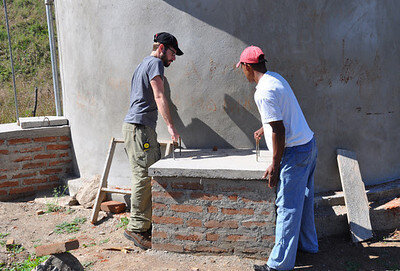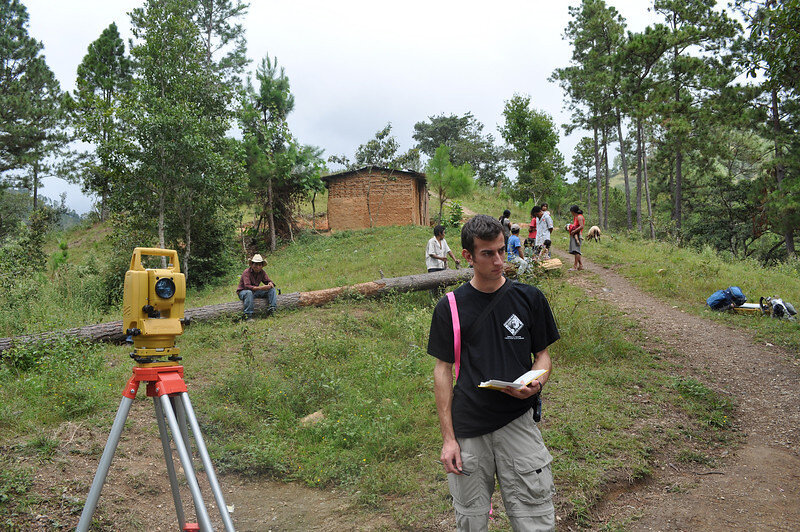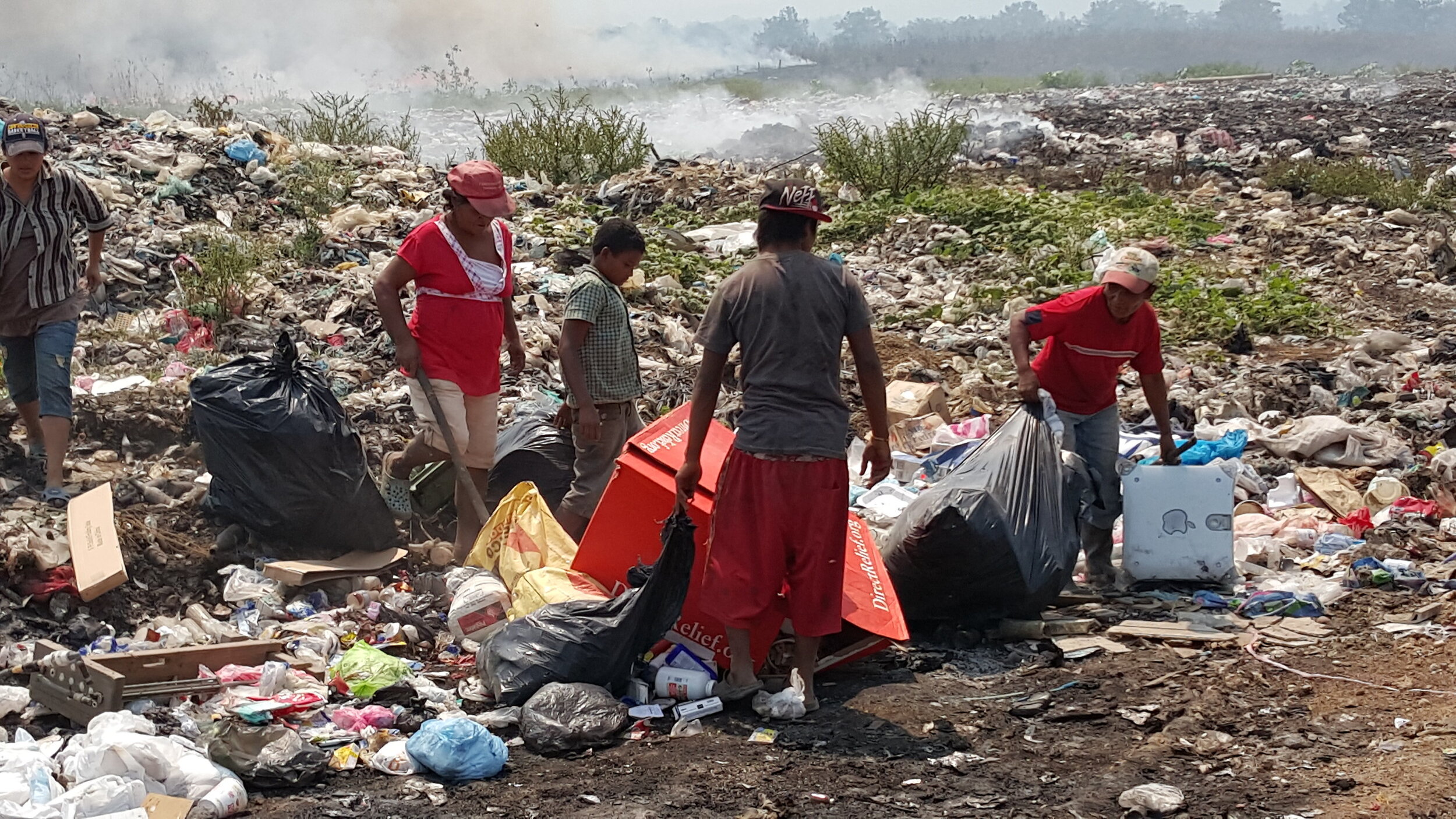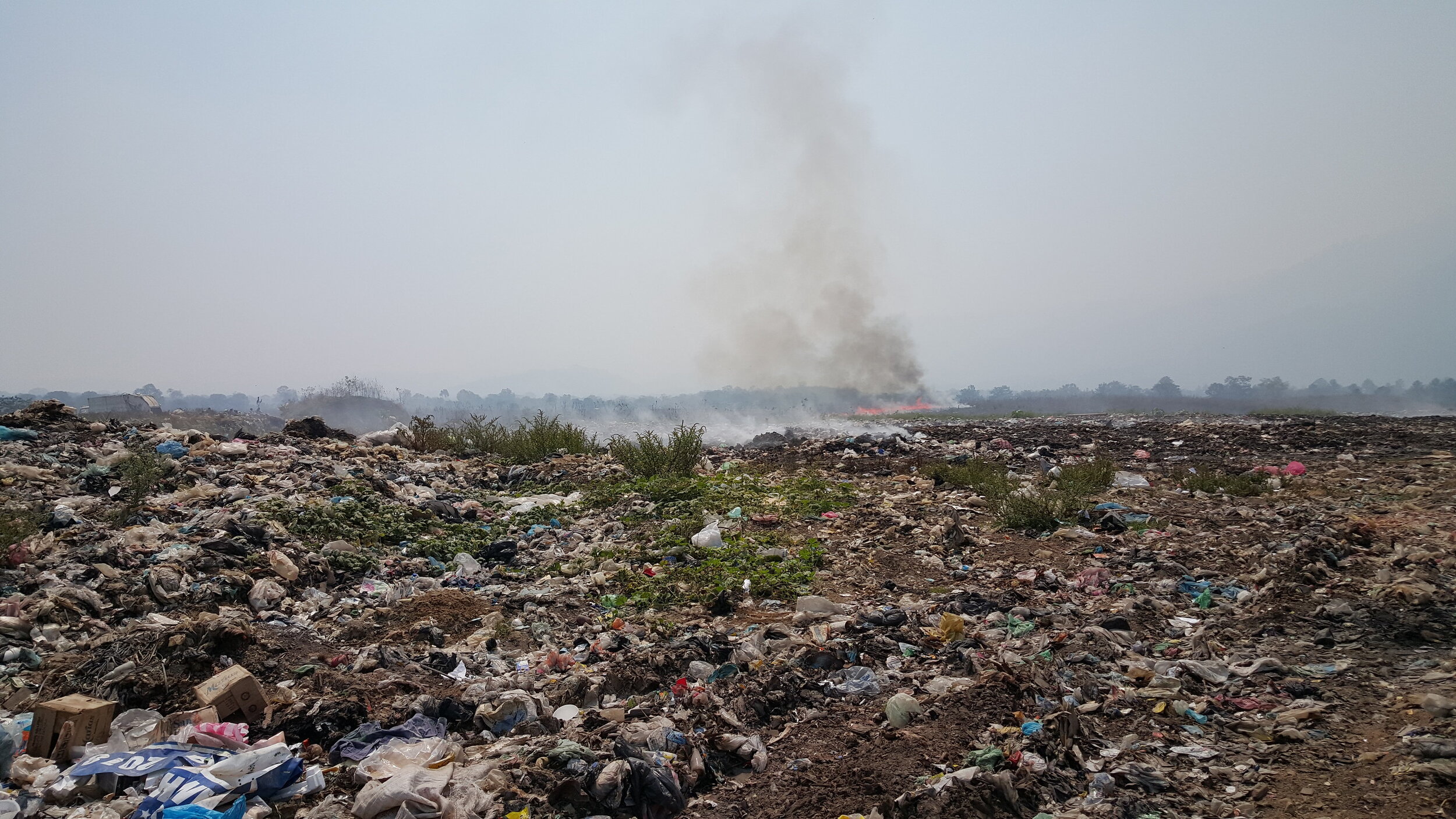Infrastructure & Public Health
Better infrastructure improves public health
Building up the basics
Our version of community building, which we define as helping people to make their own communities better, is grounded in improved infrastructure to promote better public health. For more than 35 years working in and around El Rosario, we have targeted systems for improvement including sufficient and convenient water, sanitation, roadways, safe cooking, nutrition, and reduced contamination from pesticides.
Good water is essential to human health
Small communities are established as groups of families move to a new location for a variety of reasons — better access to water, or a school, or work. What may have seemed like sufficient resources when the community began, can become insufficient as a community grows. Or, an improvement can make a community so attractive that it becomes overwhelmed, which creates new problems. One community more than doubled in households when existing homes were provided with water spigots at their doorsteps. The much larger population suddenly had significant sanitation needs. ACTS has worked with many communities to design and build appropriate infrastructure, including water systems.
ACTS’ in-house team of engineers evaluates local situations to prioritize long-term projects that require significant fundraising and thousands of hours of local volunteer labor to execute sophisticated civil engineering solutions. Communities established near a river or spring are all set. Our engineers are helping the communities to access water from mountains miles away. The “sophisticated solutions” include bridges handmade of barbed wire to carry PVC water pipes over deep ravines, miles of trench dug by hand through jungle, and extending electricity to a mountaintop to power a pump.
The current project in Ocotal is a good example. The ACTS engineering group is two 3-person teams of professional engineers alternating over three years in cooperation with dozens of families. Water is being transported for miles over mountains, and in total, the project cost is more than $100,000, all from donors to ACTS.
For 20 years, ACTS partnered with Engineers Without Borders (Northeastern University chapter) and their fine work by students and faculty established water systems in many local communities. Changes in their risk management protocol no longer permits students to travel to Honduras.
Now, many professional engineers who trained in the Northeastern University program form the ACTS engineering team, continuing to partner with the local people they met as students. The engineers’ long-term connections with local leaders are essential to ACTS effective solutions.
Even in communities with water systems, maintenance requires continual attention. Typical issues include replacing distribution pipes clogged with deposits from extremely hard water, extending system installations in growing communities, and consulting on everything from cracked tanks to burned-out pumps.
Usually, the task of getting and using household water falls to women. The terrible toll it takes on their lives is explained by this young mother from the community of Los Oreros who talked about life before she had a water spigot at her home: “Every day I had to climb to the bottom of the ravine to get water from the stream. I carried the baby and two small children had to walk with me. Coming back up, I had to carry the water and the baby. It was horrible.”
Proper sanitation improves health and dignity
The standard is one family per latrine. These are small huts, about 4x4’, with a concrete stool over a hand-dug pit. Latrines provide a safe and private place for individuals to toilet. Families without latrines are reliant on finding a private place behind a bush. One father from the mountaintop community of Carrizalito said, “We were always sick until we got latrines.”
In 2020, two hurricanes within two weeks dropped 40 inches of rain, filling family latrines and rendering them unusable. In response we initiated a large-scale latrine project to replace about 750 latrines. ACTS focused on providing guidance, advice, and the funding for these projects. Local community members formed teams to dig the holes and build the structures using a new system of corrugated metal to avoid termite damage.
Enclosed cooking fires reduce injuries to children
Cooking over an open fire in a small dark home is a dangerous proposition and many children had terrible burns until ACTS introduced stoves with enclosed fires. The adobe design uses all locally sourced materials and has become the standard for homes in the area. Another benefit of the design is the way wood is loaded and used, which minimizes the amount of fuel needed. The improved stoves have stovepipes, which vent to outdoors eliminating the smoky homes that cause so many respiratory problems.
A diverse diet provides better nutrition
The traditional Honduran plate includes corn tortillas and red beans. During times of famine due to crop failure or drought, families may have only corn, or only beans, and reduce feeding to just one or two meals per day. As a family has more resources, they add eggs, locally made cheese (queso), a slide of avocado, or fried plantains. All of this makes up the “plato typico,” or typical plate.
In very difficult times, ACTS provides supplemental food to communities based on consultation with local leaders. Food insecurity is a constant and growing problem stemming from climate change. Listen Inside Climate News discussion on how climate change affects food production in El Rosario. More about ACTS work on improving agriculture is here.
Choosing to consume a better and more diverse diet presumes a person has a choice. ACTS has several initiatives that introduce information about the benefits of a diverse diet including Taking Care of Moms, which is an educational series for pregnant women; the Faith & Hope Garden to encourage “kitchen gardens;” and the Fuerza para el Futuro, a teen leadership program.
Roadways are an economic lifeline
Keeping roads passable is a challenge in Honduras where heavy rainfall and extreme erosion can destroy a road within an hour. In strong storms, rain flows through roads as if they are riverbeds carrying soil and debris in knee-deep rushing water. The next day, what might have been barely passable becomes impossible where gullies and ravines take the place of the dirt roadway. Road repair is either by men with hand tools or occasionally a government worker with heavy equipment will scrape the road making it passable again, but never building ditches to carry storm runoff. After the 2020 hurricane season, ACTS funded some basic road repair to restore bus service to the bigger town of Yoro with its banks, grocery and hardware stores, and hospital.
Fire departments in New Hampshire and Vermont share equipment with Hondurans
We have been inspired by the brave firefighters in the town of Yoro who battle fires in their street clothes. Among a force of about 20 volunteers, they had just two sets of the protective hat, coat, and boots that making firefighting safer. With ACTS’s coordination, several towns in NH and VT generously contributed used gear that greatly increased Yoro’s ability to equip their crew.
